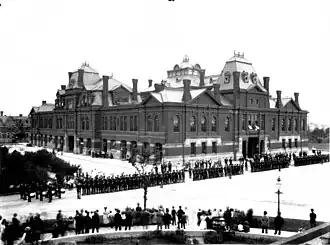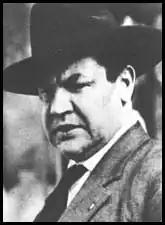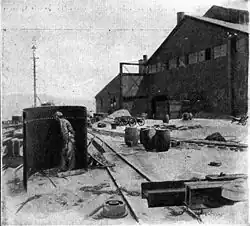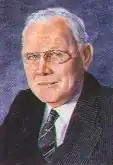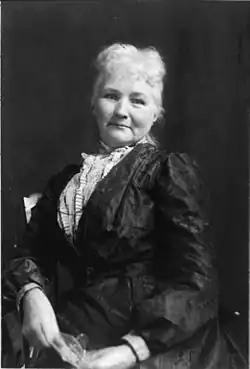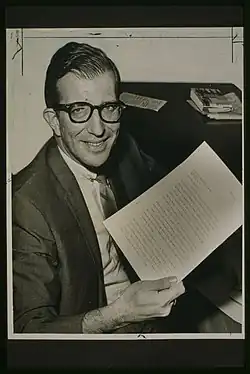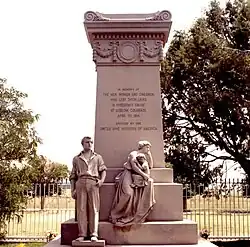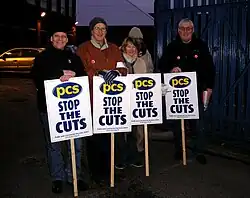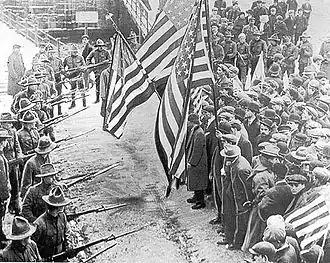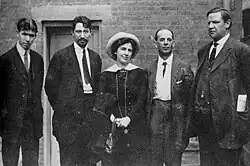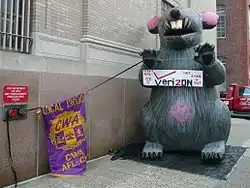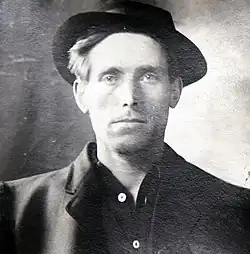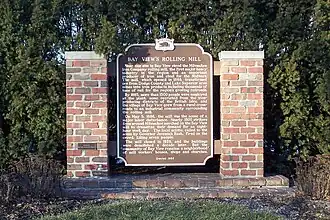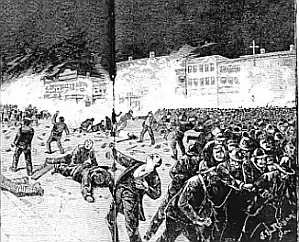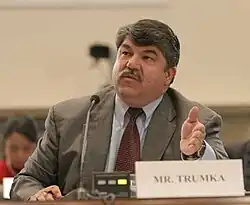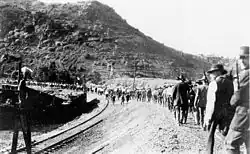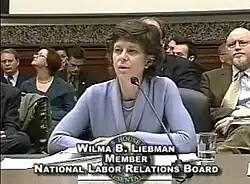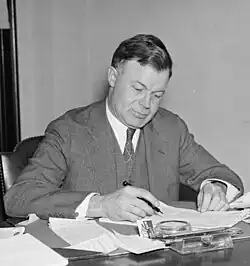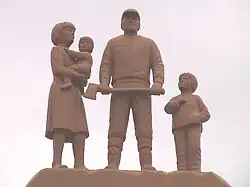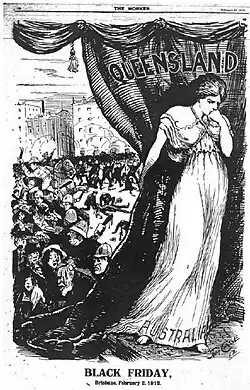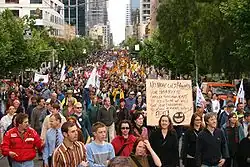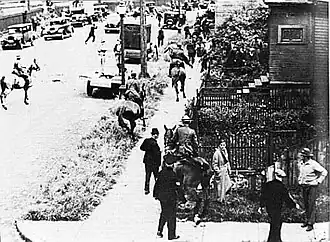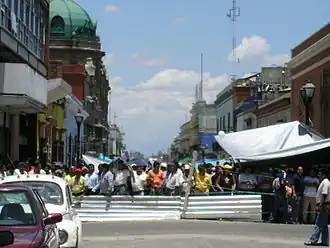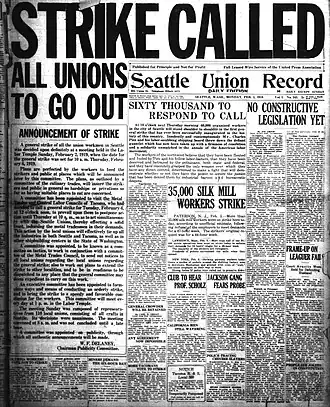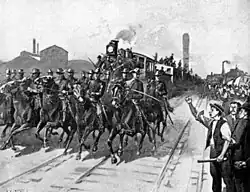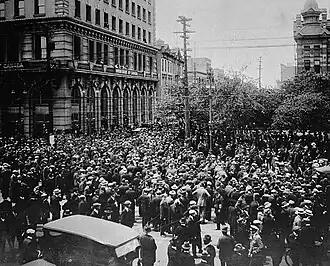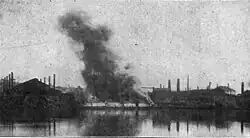Portal:Organized Labour

Introduction
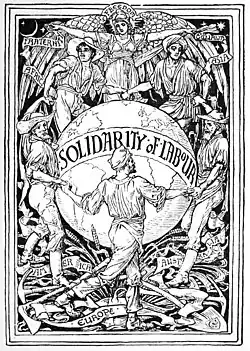
- In trade unions, workers campaign for higher wages, better working conditions and fair treatment from their employers, and through the implementation of labour laws, from their governments. They do this through collective bargaining, sectoral bargaining, and when needed, strike action. In some countries, co-determination gives representatives of workers seats on the board of directors of their employers.
- Political parties representing the interests of workers campaign for labour rights, social security and the welfare state. They are usually called a labour party (in English-speaking countries), a social democratic party (in Germanic and Slavic countries), a socialist party (in Romance countries), or sometimes a workers' party.
- Though historically less prominent, the cooperative movement campaigns to replace capitalist ownership of the economy with worker cooperatives, consumer cooperatives, and other types of cooperative ownership. This is related to the concept of economic democracy.
The labour movement developed as a response to capitalism and the Industrial Revolution of the late 18th and early 19th centuries, at about the same time as socialism. The early goals of the movement were the right to unionise, the right to vote, democracy, safe working conditions and the 40-hour week. As these were achieved in many of the advanced economies of Western Europe and North America in the early decades of the 20th century, the labour movement expanded to issues of welfare and social insurance, wealth distribution and income distribution, public services like health care and education, social housing and common ownership. (Full article...)
Selected article
The labour movement is the collective organisation of working people to further their shared political and economic interests. It consists of the trade union or labour union movement, as well as political parties of labour. It can be considered an instance of class conflict.
- In trade unions, workers campaign for higher wages, better working conditions and fair treatment from their employers, and through the implementation of labour laws, from their governments. They do this through collective bargaining, sectoral bargaining, and when needed, strike action. In some countries, co-determination gives representatives of workers seats on the board of directors of their employers.
- Political parties representing the interests of workers campaign for labour rights, social security and the welfare state. They are usually called a labour party (in English-speaking countries), a social democratic party (in Germanic and Slavic countries), a socialist party (in Romance countries), or sometimes a workers' party.
- Though historically less prominent, the cooperative movement campaigns to replace capitalist ownership of the economy with worker cooperatives, consumer cooperatives, and other types of cooperative ownership. This is related to the concept of economic democracy. (Full article...)
August in Labor History
Significant dates in labour history.
- August 01 - The Jiu Valley miners' strike of 1977 began in Romania; the 1942–44 musicians' strike began in the U.S.; Mary Harris "Mother" Jones was born; the United Firefighters Union of Australia was founded
- August 02 - Robert Zieger was born; the Contrat nouvelle embauche entered into force in France in 2005
- August 03 - The Professional Air Traffic Controllers Organization strike began in the U.S.
- August 04 - Joseph Paul-Boncour was born; the Amalgamated Association of Iron and Steel Workers was formed
- August 05 - The Lupeni Strike of 1929 occurred in Romania; the National Labor Board was created; Devan Nair was born
- August 06 - Jackie Presser was born
- August 07 - Frank Fitzsimmons was born
- August 08 - David McDonald died; the United Brotherhood of Carpenters and Joiners of America was formed; Arthur Goldberg was born
- August 09 - The California School Employees Association was founded; Raymond McKay died; Harry Davenport died; Thomas E. Scanlon died; the 1981 Major League Baseball strike ended in the U.S. and Canada; John Willcock was born
- August 10 - The U.S. Steel recognition strike of 1901 began; Iorwith Wilbur Abel died; Dorothy Jacobs Bellanca was born
- August 11 - The International Longshore and Warehouse Union was founded; Iorwith Wilbur Abel was born; Rose Schneiderman died; Edwin D. Hill was born
- August 12 - The Buffalo switchmen's strike of 1892 began; the 1994–95 Major League Baseball strike began in the U.S. and Canada; the National War Labor Board was abolished in 1919; the Chorus Equity Association was founded; the Unión General de Trabajadores was founded
- August 13 - Carlos Ortega escaped from prison in Venezuela and disappeared
- August 14 - Solidarity struck for the first time; Joseph Curran died; Lane Kirkland died; Selig Perlman died; N. M. Perera died
- August 15 - The 1890 Australian maritime dispute began; Herbert Hill died; lockout of the Canadian Media Guild began in 2005 in Canada; Anna Walentynowicz was born
- August 16 - George Meany was born; Dorothy Jacobs Bellanca died
- August 18 - The 1989 Australian pilots' strike began; the American Federation of Government Employees was founded; Alberto Hurtado died
- August 19 - The Maritime Trades Department of the AFL–CIO was founded; Aircraft Mechanics Fraternal Association launched a strike against Northwest Airlines
- August 22 - The United Farm Workers was founded; the Association of Flight Attendants was founded
- August 23 - The Gurindji strike began in 1966 in Australia; the Salad Bowl strike began in the U.S.
- August 24 - Ray Stevenson died
- August 25 - The Brotherhood of Sleeping Car Porters was founded; the Battle of Blair Mountain began in 1921 in the U.S.; the 2006 Progressive Enterprises dispute began in New Zealand; the Buffalo switchmen's strike ended in the U.S.; Charles Millard was born; Miron Cozma was born
- August 26 - The Dublin Lock-out began in 1913
- August 27 - Juan Lechín Oquendo died
- August 28 - The March on Washington for Jobs and Freedom occurred; the film Matewan was released; the Central Única dos Trabalhadores was founded
- August 29 - The British police strikes in 1918 and 1919 began; the U.S. Supreme Court ruled picketing is not a breach of the peace in Cox v. Louisiana; Emmanuel Christopher Loblack was born
- August 31 - The Gdańsk Agreement was signed, ending the first wave of strikes by Solidarity
More Did you know (auto-generated)
- ... that after being arrested for organizing a general strike in 1920, S. Girinis was sent to the Soviet Union following a Soviet-Lithuanian exchange of political prisoners?
- ... that the British Tychon missile was developed from a Barnes Wallis concept to keep strike aircraft safe while dropping nuclear bombs?
- ... that a 23-day CBC strike thrust Don Goodwin into the Canadian national spotlight and into "folk-hero status"?
- ... that the execution of Burkinabé trade union leader Soumane Touré was prevented by the intervention of his childhood friend, then-president Thomas Sankara?
- ... that shortly after a missile strike on the Russian Black Sea Fleet headquarters, Oleksiy Danilov said that the fleet could be "sliced up like a salami" at a later date?
- ... that John Sterling, Anthony Harrison and Chuck Compton were all signed by the Green Bay Packers as replacement players because of a players' strike during the 1987 NFL season?
Related Portals
Selected image
Selected Quote
History is a great teacher. Now everyone knows that the labor movement did not diminish the strength of the nation but enlarged it. By raising the living standards of millions, labor miraculously created a market for industry and lifted the whole nation to undreamed of levels of production. Those who attack labor forget these simple truths, but history remembers them."
|
— Martin Luther King Jr., Speaking to the AFL-CIO on December 11, 1961. |
Did you know
- ...that the Farm Labor Organizing Committee's 2004 collective bargaining agreement with the Mt. Olive Pickle Co. marked the first time an American labor union represented guest workers?
- ...that lobbying by the International Seamen's Union led to the abolition of the practice of imprisoning seamen who deserted their ship in the United States in 1915?
- ... that Norwegian trade unionist Ludvik Buland, sentenced to death by the Nazi authorities in 1941, was later reprieved, only to die in a Nacht und Nebel camp four years later?
Topics
Get involved
Also see our sister WikiProject, Housing and Tenant Rights!
Associated Wikimedia
The following Wikimedia Foundation sister projects provide more on this subject:
-
Commons
Free media repository -
Wikibooks
Free textbooks and manuals -
Wikidata
Free knowledge base -
Wikinews
Free-content news -
Wikiquote
Collection of quotations -
Wikisource
Free-content library -
Wikiversity
Free learning tools -
Wiktionary
Dictionary and thesaurus
-
 List of all portals
List of all portals -

-

-

-

-

-

-

-

-

-
 Random portal
Random portal -
 WikiProject Portals
WikiProject Portals
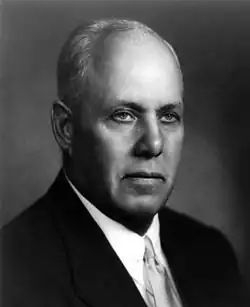
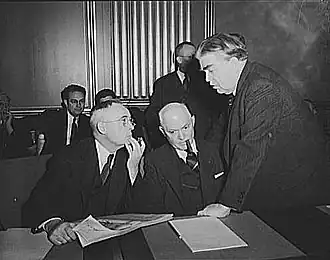
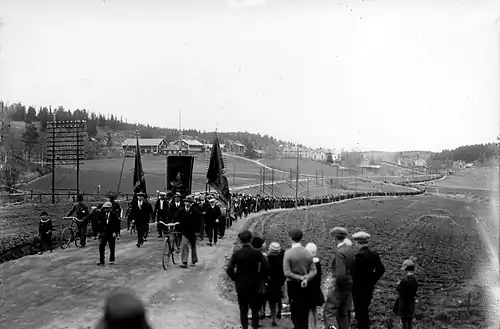
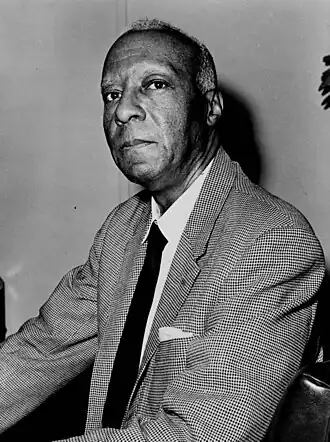
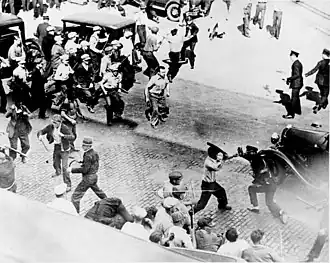
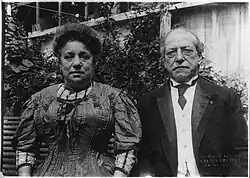

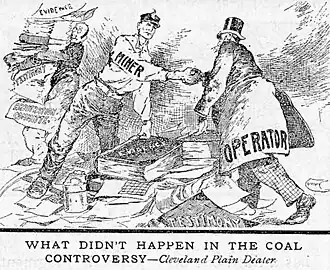
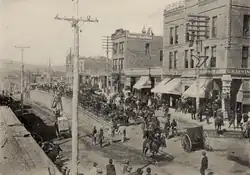
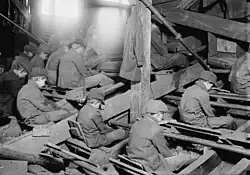


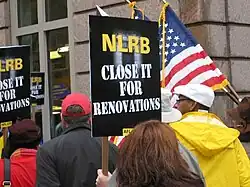
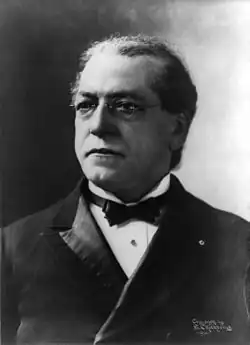
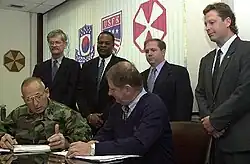
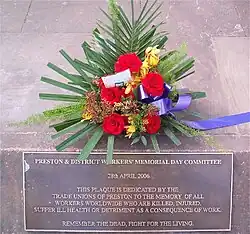

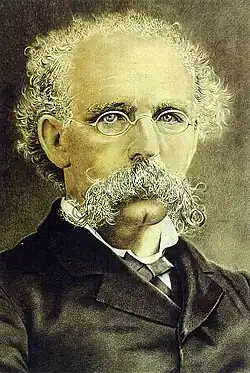

.jpg)
